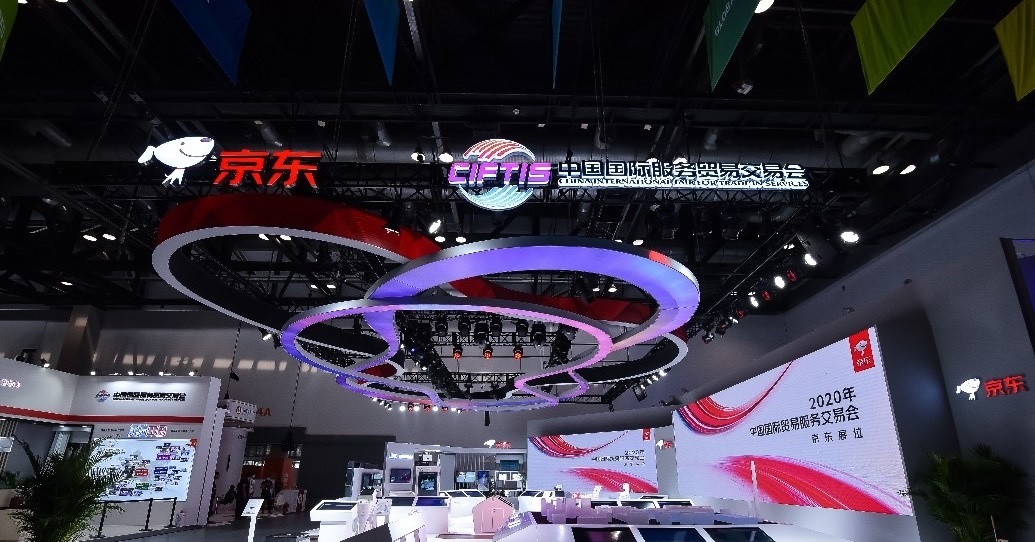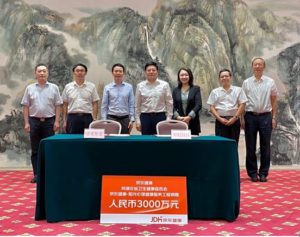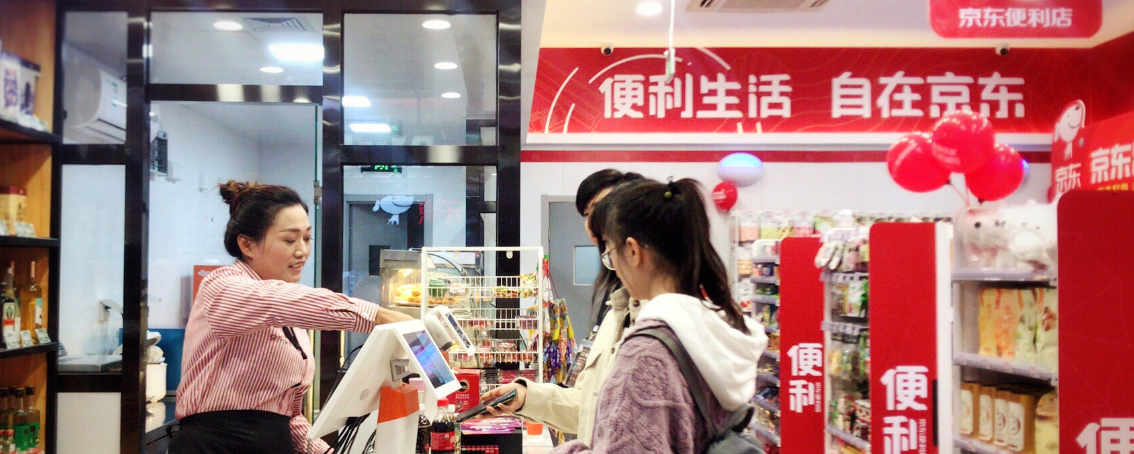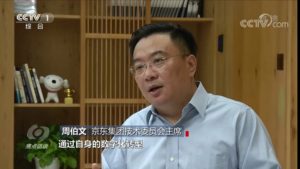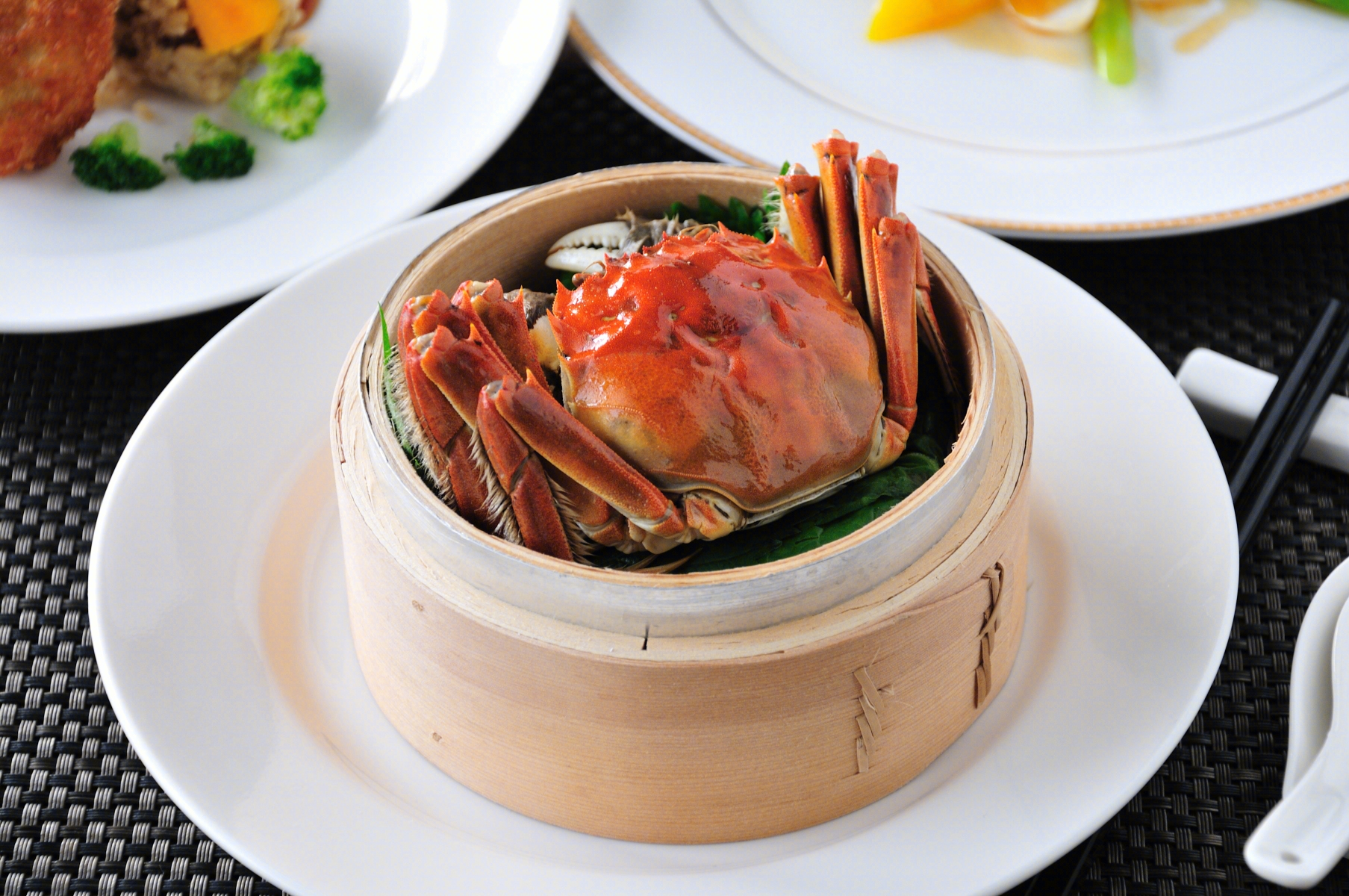by Ling Cao
Many people think Beijing is not a fertile land to develop convenience stores, while by cooperation with JD, Jianxing Fang, who is affectionately nicknamed “Lao Fang”, has opened two in just one year, breaking the unfavorable obstacles, such as the winter is too long in Beijing and people are intended to stay at home, and Beijing has too many gated communities which are not easy for convenience stores to penetrate. Fang’s successful story showed great potential for people to open more convenience stores in Beijing.
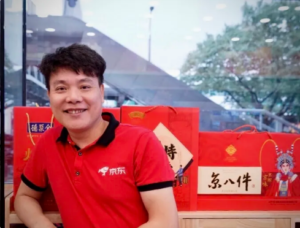
Lao Fang
Trying very hard to overcome all those difficulties, Lao Fang started in 2000, when he and his little brother came from Fujian province to Beijing, to search for business opportunities. They worked at offline cellphone stores for three years, until SARS caused many of the stores to close. Lao Fang seized the opportunity to open up his own cellphone stores after the pandemic, but the disease also changed the whole consumption landscape, and more and more customers prefer to shop online.

Night scene of Xidan
“Under the condition of providing the same level of service, our price couldn’t be lower than online stores.” Lao Fang said. During that time, he considered whether it was possible to combine online and offline business. At the same time, JD is considering how to leverage its online capabilities to help offline convenience stores transform their business model to a smart and innovative one. Lao Fang spoke with the convenience store team under JD New Markets, the B2B2C platform supplying mom-and-pop stores under JD.com, and finally decided to enter the convenience store business. He has opened two convenient stores in Xidan district, a popular business area to the west of Tiananmen with similar fame of Wangfujing.
“JD is famous for providing high quality and authentic products to customers. The company also provides strong support in sales channel, logistics, and big data. What they provide is not only a store operation plan, but a business plan based on customer profile.” Lao Fang shared why he chose to partner with JD. Although he doesn’t have convenience store operations experience, he believes that JD can provide the most professional support and service to him.
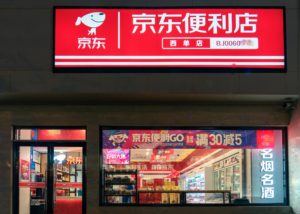
Lao Fang’s first JD convenience store
JD’s convenient store team was involved in the entire set up process for Lao Fang’s two stores, from location evaluation based on big data, decoration and layout, product selection and new technologies such as smart store management, as well as an automated checkout system. The second store differs from the first one in that the store has included Lao Fang’s former cellphone business, as well as a milk tea making area.
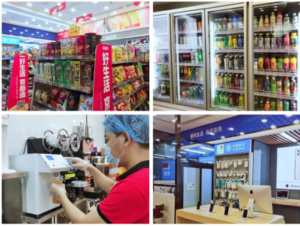
Colorful products in Lao Fang’s store
Local residents can bring their watches or small appliances to the store for maintenance. Lao Fang even helped an elderly repair the sewerage system at their home.
“We can only provide improved service by focusing on customers’ real demand. JD convenience store works as a way to connect online and offline business.” Lao Fang added.
The store also has seen good sales performance. The first store is only dozens of square meters, while the maximum daily sales reached nearly RMB 40,000 yuan.
“JD is doing long-term business. The company’s business philosophy and core values are similar to my view of “customer first.” Fang said, “While Xidan is one of Beijing’s ID cards, I hope my two stores can be served as ID card of Xidan.”
(ling.cao@jd.com)


